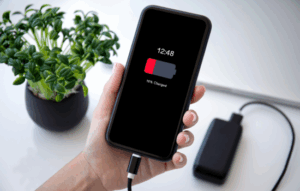Advertisements
In the digital age, our smartphones contain a wealth of personal and professional information, making them attractive targets for malware and other cyber threats.
Therefore, having an antivirus on your cell phone is essential to safeguard your data and keep your device running smoothly.
Advertisements
In this article, we'll explore why it's crucial to have an antivirus on your smartphone, the threats mobile devices face, the features a good antivirus should have, and some security app recommendations.
Why Do You Need an Antivirus on Your Cell Phone?
Mobile devices are becoming increasingly sophisticated, and with them, so are the techniques used by cybercriminals to steal information or damage systems.
See also
Advertisements
- Learn to Play Trumpet and Other Instruments
- Master the Art of Buying Motorcycles at Auction
- Discover the Secrets of Buying a House at Auction
- Learn How to Buy Cars at Auctions
- Learn Piano: A Comprehensive Guide to Mastering the Keyboard
Here are some reasons to install an antivirus on your cell phone:
- Protection of Personal Data:
Your smartphone stores sensitive information, from contacts and emails to passwords and banking information. A good antivirus detects and neutralizes malicious apps that attempt to steal or compromise this data. - Navigation Safety:
Many antivirus programs include web browsing protection features, blocking fraudulent or virus-containing sites and preventing you from falling into phishing traps or inadvertently downloading malware. - Ransomware and Malware Prevention:
Mobile devices can fall victim to ransomware, which blocks access to your information until you pay a ransom, or other types of malware that slow down device performance or make it unstable. - Malicious Application Control:
Official stores are not exempt from harmful apps. An antivirus scans the apps installed on your phone and alerts you to any that pose a risk.
Common Threats on Mobile Devices
To understand the importance of an antivirus, it's helpful to know the threats to which smartphones are exposed:
- Malware and Viruses:
Malicious programs can infiltrate the system through applications downloaded from unofficial sources, text messages, or suspicious links. - Spyware and Adware:
Software that collects personal information without your consent or displays intrusive advertising, affecting both privacy and device performance. - Phishing:
Deceptive techniques that seek to obtain confidential information by impersonating someone in fraudulent emails, messages, or websites. - Ransomware:
Malicious software that blocks access to your phone or specific data, demanding a ransom to release it. - System Vulnerabilities:
Flaws in the operating system or applications can be exploited by attackers to install malware or access your data.
Key Features of a Good Mobile Antivirus
Not all antivirus software is created equal, and choosing the right one for your device means considering certain key features:
- Real-Time Scanning:
A good antivirus should continuously monitor your device to detect and eliminate threats as soon as they appear. - Constant Updates:
Threats are constantly evolving, so it's crucial that your antivirus receives regular updates to protect against new viruses and malware. - Web Protection:
Features that block suspicious websites and prevent phishing attacks, protecting your browsing and online transactions. - Low Impact on Performance:
It should run in the background without significantly affecting your phone's speed or performance. - Ease of Use:
An intuitive interface and clear settings make it easy to use, even for those without advanced technical knowledge. - Additional Features:
Some solutions offer additional features such as anti-theft, data loss protection, data backup, and parental controls.
Antivirus Recommendations for Cell Phones
There are several antivirus applications on the market that have proven to be effective and reliable. Below are some of the most notable options:
1. Avast Mobile Security
- Characteristics:
Avast offers real-time protection, app and website scanning, and anti-theft features. It also has a privacy mode that lets you lock apps and protect your personal data. - Advantages:
It's free in its basic version, with a user-friendly interface and frequent updates to combat new threats.


2. Bitdefender Mobile Security
- Characteristics:
Bitdefender offers an app scanner, web protection, call blocking, and an anti-theft feature. Its detection engine is highly effective against malware and ransomware. - Advantages:
Its performance impact is minimal and it has an excellent detection rate, ideal for users looking for security without compromising the speed of their device.


3. Kaspersky Mobile Antivirus
- Characteristics:
Kaspersky is known for its high level of protection and reliability. It offers real-time scanning, blocking of suspicious applications, and browsing protection. - Advantages:
Its free version is robust and easy to use, and the option to upgrade to the premium version adds additional features like anti-theft and advanced protection.

4. Norton Mobile Security
- Characteristics:
Norton provides malware protection, app security scanning, and backup features. It also includes tools to locate and lock your device if it's lost. - Advantages:
It's a complete option for users who want comprehensive protection, although some advanced features require a subscription.


Tips to Keep Your Cell Phone Safe
In addition to installing an antivirus, there are good practices you can follow to increase the security of your device:
- Download Apps Only from Trusted Sources:
Use official stores like the Google Play Store or the App Store to minimize the risk of downloading malicious software. - Update your Operating System and Applications:
Updates fix vulnerabilities that could be exploited by attackers. Keep your device and all apps up to date. - Beware of Suspicious Links and Files:
Avoid clicking on links from unknown sources and don't download attachments from suspicious emails or messages. - Use Strong Passwords and Two-Factor Authentication:
Protect your accounts with strong passwords and, whenever possible, enable two-factor authentication to add an extra layer of security. - Make Backups:
Regularly back up your data to the cloud or an external device to prevent data loss in the event of an attack.

Conclusion
In an increasingly digital world, protecting your phone is just as important as protecting your computer. A reliable antivirus not only helps keep your device safe from malware, phishing, and other threats, but also protects your personal data and improves your user experience. Apps like Avast, Bitdefender, Kaspersky, and Norton are excellent options that offer a variety of security features tailored to each user's needs.
In addition to installing a good antivirus, it's essential to follow good security practices, keep your apps and operating system updated, and be cautious with links and downloads from unknown sources. With these measures, you can enjoy a safe and worry-free mobile experience.
Don't wait any longer to protect your device! Install the antivirus that best suits your needs and follow these tips to keep your phone safe at all times. With good protection, you can browse, work, and enjoy your favorite apps without fear of digital threats.




